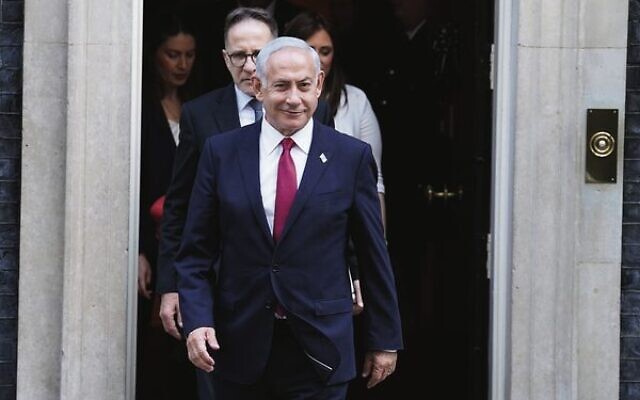British Jews ‘grounded’ in support for Israel
Tying in to the vulnerability of British Jews is the "vitality" component. In this sector, JPR has gathered data on what part of their Jewish identity matters most to British Jews.

Despite all the unrest of the past several months, British Jews remain “grounded” in their support for Israel, according to polling collected by the Institute for Jewish Policy Research (JPR).
But director Dr Jonathan Boyd, presenting an across-the-range snapshot of British Jews at a House of Lords reception last Thursday, said recent figures showed “disapproval ratings” of Prime Minister Benjamin Netanyahu of around 70 per cent.
Eighty per cent of British Jews disapproved of Bezalel Smotrich, the far-right Finance Minister, while just 30 per cent disapproved of the former prime minister and now Israeli Opposition leader, Yair Lapid.
Boyd’s presentation, hosted by JPR president Lord Leigh, was divided into three “Vs” – viability, vulnerability and vitality. In each category, Boyd sketched the state of British Jewish society, which, after a marked decline in population in the mid-1950s, has now recovered and is increasing. Between comparisons of Census figures and JPR’s own research, Jewish Britain could now comprise as many as 310,000.
Much of this rise, he said, was due to the Charedi element, now representing 25 per cent of British Jewry and likely to become much more in the coming years. This trend, he said, needed to be viewed against a marked increase in secularism across the whole of British society, and could indicate “a scope for misunderstandings” in the future.
In the “vulnerability” sector, Boyd showed Community Security Trust graphs which showed massive spikes in antisemitic incidents each time there was a major conflict between Israel and Hamas. “There is a direct relationship with what happens in Israel, and [this] is then felt on the streets of the UK,” he said. Oddly, two groups showed nearly identical levels of complaint: the strictly Orthodox, and the non-affiliated, both of whom indicated very similar levels of antisemitic attacks.
Tying in to the vulnerability of British Jews is the “vitality” component. In this sector, JPR has gathered data on what part of their Jewish identity matters most to British Jews. Two factors scored most highly: remembrance of the Holocaust, and combating antisemitism. And JPR’s work in Europe has shown that Holocaust remembrance is the most dominant component in expressing Jewish identity in almost every European country with a Jewish community. But Boyd warned that such factors were not necessarily the best on which to build a strong Jewish identity.
“Jewish identity should be built on religiosity, on culture, on heritage, on values – but not really on a sense of fear or historical remembrance.”
Commenting on the close ties between British Jews and Israel, Boyd said figures showed that Jews in the UK “feel considerably more attached to Israel than American Jews”. One reason, he believed, “is the geographical proximity. We are much more likely to have visited, to have personal connections”.
And he presented two sets of figures showing responses to the question: “How important is Israel to your Jewish identity?” The first figures date from 2013, the second from the end of 2022. “What strikes me is there has literally been no change – it is uncanny how similar the figures are. It seems to me that British Jews remain attached to Israel, and there hasn’t really been any shift in our support for Israel over the course of the last 10 to 15 years.”
Though noting that “our fundamental relationship with Israel is quite robust”, Boyd noted that wealth was a factor in all aspects of Jewish identity. “You are less likely to engage in Jewish life the less wealthy you are. The poorer people are, for example, the less likely they are even to do something as small as lighting Shabbat candles.”
JEWISH NEWS UK

comments